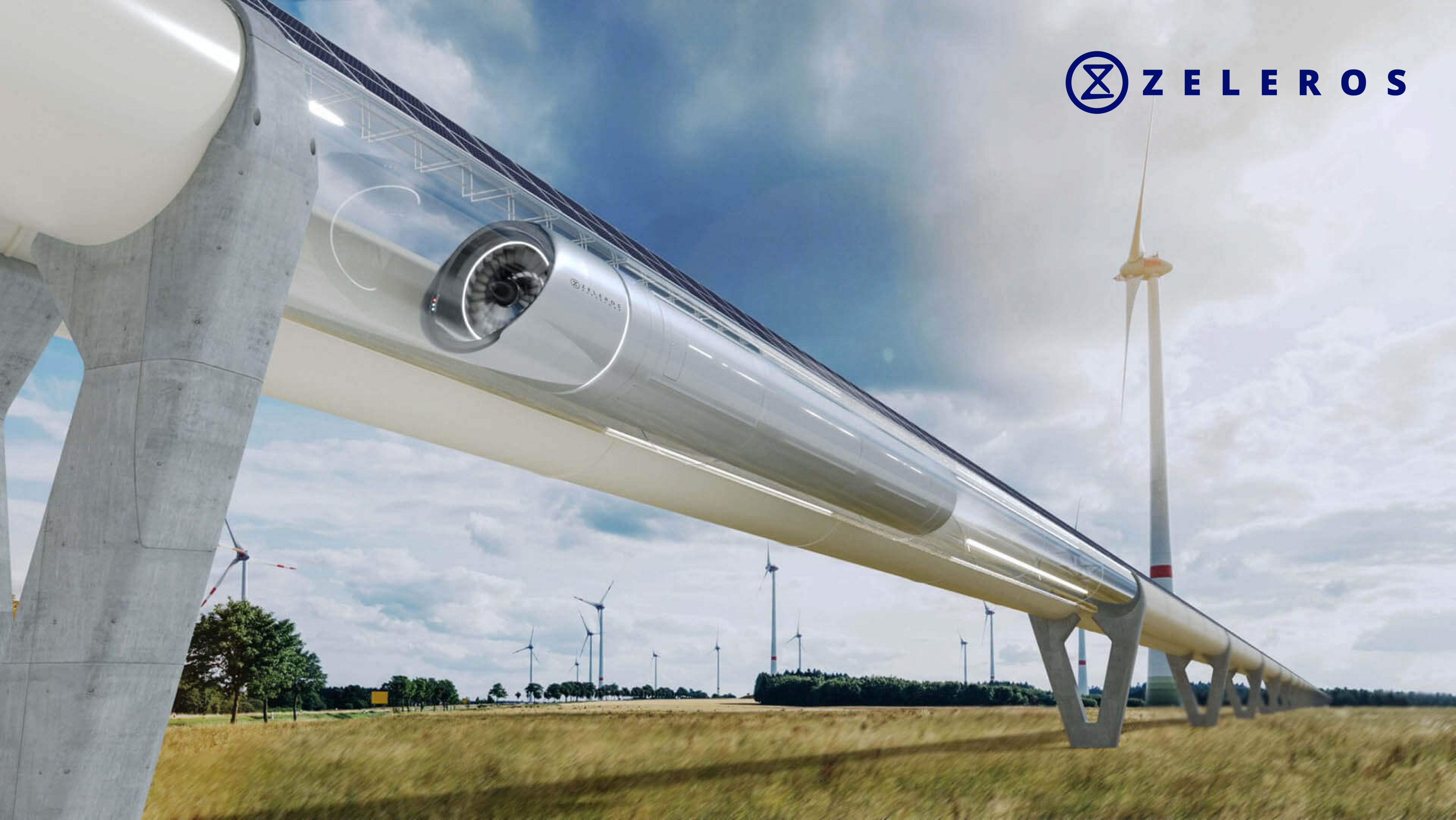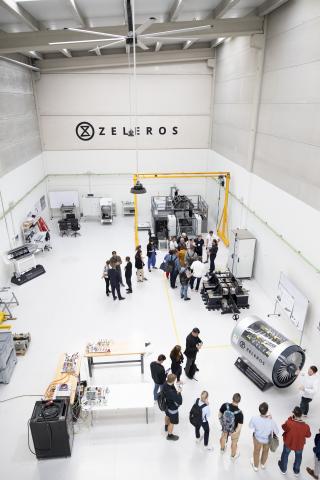Deep Dive into Deep Tech: Meet Zeleros

The European Institute of Innovation and Technology is committed to supporting disruptive new technology that powers a sustainable future for generations to come. To commemorate the one year launch of the Deep Tech Talent Initiative – set to skill one million talents in deep tech sectors – EIT representatives and a group of journalists got the chance to have a behind the scenes look at one of the most disruptive deep-tech innovations to come: hyperloop.
On 11 October 2023, EIT was welcomed in Valencia, Spain to visit the laboratory of Zeleros , one of the seven hyperloops companies in the world. Once relegated to science fiction, hyperloops – low pressure tubes that transport passengers and cargo in high speed pods – is beginning to take form, with Zeleros promising operation as soon as 2030.
In addition to an already established collaboration with the EIT, the occasion marked the formal announcement that Zeleros will join the Deep Tech Talent Initiative as a pledge member, working to increase the number of skilled workers in Europe.
Hyperloops are set to become a solution for fast, seamless and sustainable transportation, with capsules or ‘pods’ levitating between 600-1000km/hour inside a network of low-pressure tubes. Juan Vicén, co-founder and VP of Institutional Relations at Zeleros, describes it as ‘a mix between an airplane and train, but much smoother, with the feeling of being inside an elevator’. Hyperloop technology has the potential to accommodate for carbon-free long-distance travel, offering an alternative to today’s heavily polluting transportation sector.
The visiting delegation had unprecedented access to Zeleros’s three main technologies which include their levitation, linear motor (initial propulsion of the hyperloop system) and powertrain test benches. Participants had the chance to tour the facility and ask questions to Zeleros’s chief technicians and engineers.
In addition to learning about the state of advancement of hyperloops and the ecosystem market in Europe, the participants learned how, while developing new technology for their hyperloop, the engineers were able to apply their technology to existing problems. For example, the linear electric motor created for the hyperloop could also be used on its own to help ports better move containers. So Zeleros built a freight levitation track that is currently being tested in ports, shedding light on how deep tech applications create rippling effects for not only their intended markets but many more in process.
The Deep Tech Talent Initiative
Currently, there is a lack of deep tech expertise in Europe, which is why the EIT, through its Deep Tech Talent Initiative, is aiming to upskill one million people in deep tech fields over the next three years. Deep tech involves advanced and emerging technology solutions in fields including virtual reality, robotics, semiconductors, aerospace, cybersecurity, AI, biotechnology, clean technologies, Big Data and many more. Investing in Deep Tech skills will help create new innovations to pressing global challenges such as climate change, sustainable energy and health. As well as create new jobs, keep companies and talent pools in Europe and work towards a more sustainable future.
Since being launched in October of last year, 90 organisations have joined the Deep Tech Talent Initiative and have collectively pledged to train over 600 000 talents by 2025. The community of pledgers includes educational establishments such as universities from across Europe and global enterprises like Intel, educational NGOs such as Generation, and many more. Together, the EIT Community and pledge members are offering over 50 courses in a range of deep tech areas.
EIT Community Support to Zeleros
The founders of Zeleros Hyperloop first joined the EIT Community in 2017 as university students, taking part in EIT Climate-KIC’s venture accelerator programme. EIT Climate-KIC offered the young company mentorship and expertise in creating their business plan and helped the founders establish a core team of seven that would pioneer Zeleros’s growth. Zeleros went on to compete at the 2019 EIT Awards – awarding the most promising innovators in the EIT Community. They successfully won the EIT Public Award, winning over the audiences with their pitch for the future of sustainable mobility. At this time, they had a team of 20. Later in 2021, with a team of 40, their partnership with EIT InnoEnergy started, which connected them to one of the best networks in the world, securing investment from both EIT InnoEnergy and their industrial partners, taking the company to the next level of growth.



 Share this page
Share this page


